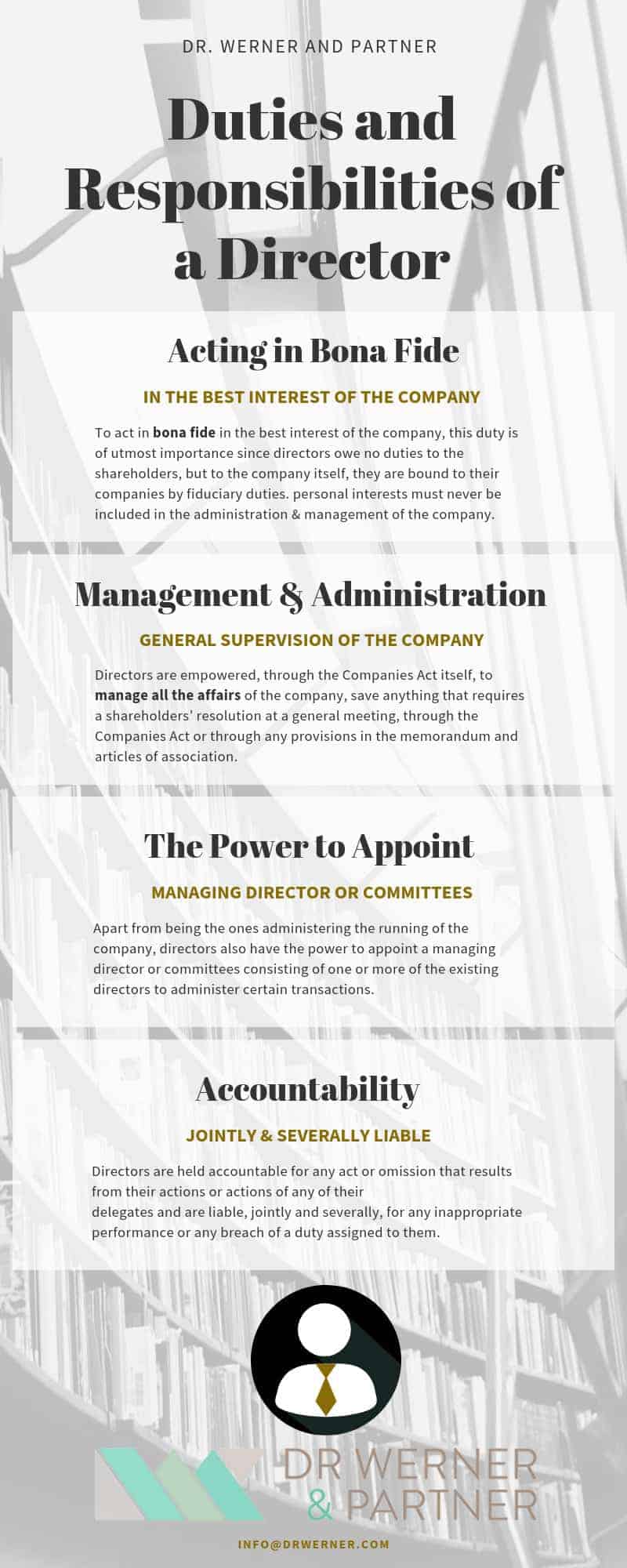Introduction
As many of you are aware, companies are formed and founded by shareholders, however, this does not mean that the company is managed and administered by its shareholders.
On the contrary, each company has its officers, each having different roles, responsibilities and powers for the management and administration of the company.
The first directors of a company are appointed by the subscribers to the memorandum of association (MaAs).
The subsequent directors are then appointed as per the clauses in the articles of association, or, where there are no articles of association or such articles of association are silent on the matter, they shall be appointed through an ordinary resolution of the company in a general meeting.
In the majority of cases, companies have individuals as Directors, however, the Companies Act provides for the possibility of a “corporate director”.
Who can be appointed Director?
You might ask “what are the requirements for one to be appointed a Director?”, Legally speaking, there are no specific requirements for one to be appointed a Director of a Company. However, one must keep in mind that the scenario is different when it comes to listed companies.
In the case of listed companies, a director must be knowledgeable in the industry through qualifications or previous experience.
The Companies Act does not provide a definition of the term ‘director’, however, it does state what the term includes, and it also provides under Article 136A what the general duties of directors are.
Furthermore, the law does not provide an exhaustive list of duties and indirectly states that the memorandum or articles of association as well as the Act itself and any other law may assign other duties to directors.
Powers of Directors
Some might argue that the wide-ranging discretionary powers afforded to Directors are advantageous to a Company since such powers provide efficiency and effortless management. However, some might look at the powers of Directors from a different perspective, that is, such wide-ranging discretionary powers may give rise to abuse of power.
Apart from being the ones administering the running of the company, directors also have the power to appoint a managing director or committees consisting of one or more of the existing directors to administer certain transactions.
Let’s break down the duties and responsibilities of a director in a few points:
- One of the primary duties of directors is to act in bona fide in the best interest of the company, this duty is of utmost importance since directors owe no duties to the shareholders, but to the company itself, they are bound to their companies by fiduciary duties. This duty to act in bona fide can never be stressed enough. Their personal interests must never be included in the administration and management of the company.
- The only exception to this rule is when a company is in a state of insolvency where the directors would owe their duties to the creditors and not the company.
- The responsibility of the directors lies mainly with the management and proper administration and general supervision of the company. Directors are empowered, through the Companies Act itself, to manage all the affairs of the company, save anything that requires a shareholders’ resolution at a general meeting, through the Companies Act or through any provisions in the memorandum and articles of association.
- A Director shall not make a profit from his/her position and must always place their personal interests aside so not to conflict with those of the company.
- Directors are held accountable for any act or omission that results from their actions or actions of any of their delegates and are liable, jointly and severally, for any inappropriate performance or any breach of a duty assigned to them.
- The Companies Act imposes an obligation on Directors to perform their duties with a degree of care, diligence and skill.
- Certain specific duties of Directors include, but are not limited to:
- Calling Board Meetings and General Meetings;
- Filing returns and other documents;
- Record keeping
Fraudulent vs Wrongful Trading
Well, we have established that directors are held liable for any act or omission carried out by them or their delegates, but how does one determine if directors are essentially in the wrong or not?
For this matter, The Companies Act distinguishes between fraudulent and wrongful trading. Wrongful trading comes about through negligence and lack of experience and skills; however, fraudulent trading comes about through intent to defraud the creditors of the company or any other creditors.
If one had to look at Maltese Case Law to understand better the responsibility and liability of the directors, the perfect example would be the Price Club Case which was the first time the Courts of Malta resorted to the provisions of fraudulent trading, even though the directors tried to plead lack of experience.
Conclusion
Even though it might seem that all the business of the company is mainly administered and managed by the directors, there are still limitations as to the powers of directors.
The directors must make sure they always keep within their powers whether such powers emanate from the Companies Act or from the memorandum and articles of association, or from any other law.
Disclaimer*
The above-mentioned article is simply based on independent research carried out by Dr. Werner and Partner and cannot constitute any form of legal advice. If you would like to meet with up with any of our representatives to seek further information, please contact us for an appointment.
